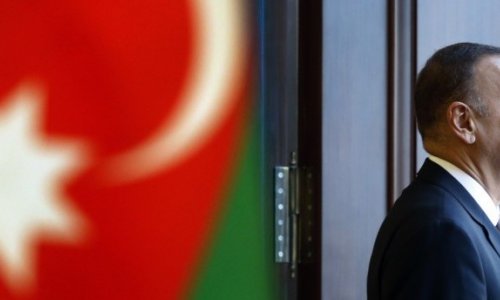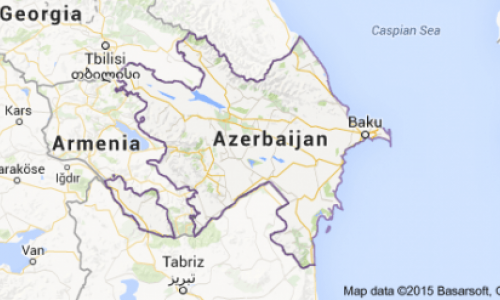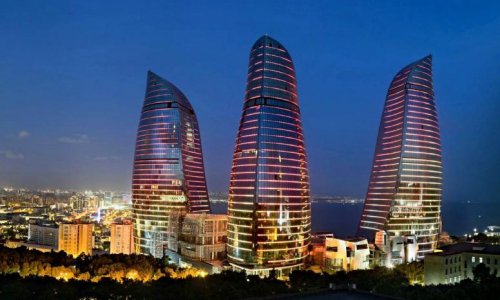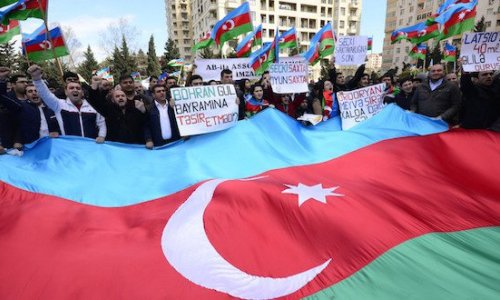By Eugene Kontorovich
The CEO of Orange telecom, Stephane Richard, just arrived in Israel for a two day visit, apologizing for his apparent suggestion that his company would boycott the Jewish State. But even as Mr. Richard explains himself to Israeli leaders, there is a new revelation in the company’s week-long drama. Researchers at the Kohelet Policy Forum, a think-tank I am affiliated with, have discovered that the telecom giant actively does business with, and promotes, settlements in occupied territory.
First, let us review developments thus far. Last week the French telecom giant caused an international fracas by saying it was going to "drop” its business with Israel – apparently in response to Arab boycott calls.
After first suggesting that the divestment was designed to ingratiate Orange to to Arab countries, and before saying it was a routine business decision, the CEO said it was due to the local affiliate’s activities in "occupied territory.” The French ambassador to the US, Gerard Araud, backed this claim, declaring on Twitter that "Contributing to settlements in an occupied territory is illegal”.
To be sure major French companies, like Total, are quite active in Moroccan-occupied Western Sahara, with the apparent approval of the French government. But it turns out that Orange itself directly and openly operates in occupied territory. Orange provides cell phone service in Nagorno-Karabakh, an area of Azerbaijan that has been occupied by Armenia since seizing it in a bloody 1992-94 war. The U.N., along with the E.U. and U.S., considers the area occupied territory. Nonetheless, Armenian settlers have moved into the occupied territory in in significant numbers, amid constant complaints from Baku and others.
Nor is this Karabakh some long-forgotten frozen conflict. Fighting broke out this year across the line of control, killing dozens, and a full scale war over the occupied territory is looming.
In other words, Orange, and the French government, is committing what a senior French official just described as a war crime. Indeed, by the theoretical international law standards applied to Israel, Orange’s behavior in Armenia is particularly egregious. Having cell phone towers in the West Bank (the purported crime of Orange’s Israeli licensee) does not involve any recognition of Israeli sovereignty or any judgement about the status of the territory.
On the other hand, Orange’s website touting its Karabakh service refers to the territory as "NKR”, or the Nagorno-Karabakh Republic. This refers to the self-proclaimed, entirely unrecognized state (akin to the Turkish Republic of Northern Cyprus) which is entirely controlled by Armenia. U.N. Resolutions have specifically called for the "nonrecognition” of the NKR. Orange’s Armenian website also calls the area "Artsakh,” the ancient name for the region favored by Armenia nationalists. It would be as if Orange, instead of complaining about, boasted of its "service in Judea and Samaria.” Indeed, Orange cravenly calls NKR a "country,” despite the clear admonition of its own government and UN against recognition of what is universally regarded as Azerbaijani territory. It would be as if Orange boasted of its service in the "Golan Heights of Israel.”
Orange proudly advertises its Nagorno-Karabakh service on the homepage of its Armenia site. A press release announcing the service said its goal is make things more "convenient” for Armenians traveling into the occupied territory. And the service is done in cooperation with a local telecom firm based entirely in, and dedicated to primarily serving, the occupied territory. In an even more amazing twist, given the French attitude towards the West Bank, Orange supports fundraising for Armenian settlements in Karabakh.
Unlike its Israel service, which is operated by a local company that merely licenses the trademark, Orange Armenia is directly run by the French-based company, and headed by a French executive, Francis Gelibter. Orange itself is quarter-owned by the French government. So France has, just this year, begun participating in what its own senior foreign ministry officials call a war crime when Israel does it.
If Ambassador Araud is right, Orange, and Mr. Gelibter, should be worried about war crimes suits brought by Azerbaijan, especially its vocal population of refugees from Karabakh. The good news for them is that the Ambassador is wrong – there is absolutely no law, rule, or general practice against doing business in occupied territories. Indeed, Mr. Gelibter can introduce my newly-published article in the Columbia Journal of Transnational Law on the subject as his fist defense exhibit.
The point is not that France (and Europe more generally) does not always live up to the rules it professes to believe in. Rather, its conduct shows that those rules are not rules at all, but made-up pretexts to condemn Israeli conduct. The reason Orange did not think twice about going into Karabakh, why the French government, why the international community, why all the NGOs focussed on business in the settlements – why none of them registered any objection to the supposed war crime of cell phone service is that there is no such crime.
There are some who will doubtless wave all this away by saying that just because everyone violates international law, it does not excuse Israel. In other words, the only way to justify calls to divest from businesses across the Green Line is to say the international community gets international law wrong everywhere except for Israel – hardly a parsimonious assumption.
Europe wants Israel to believe that the friction between them is due merely to "the occupation.” But for this message to be credible, Europe needs to be sure there is no contradictory evidence. (Similarly, the U.S. failure to recognize West Jerusalem as being part of Israel makes it hard to believe their disagreements arise from developments in 1967.) The participation of European companies in "occupation” elsewhere undermines the force of their argument, because it shows that occupation does not enough to lead to the consequences the Europeans threaten Israel with. Those consequences are not suffered by Morocco, or Turkey, or Armenia. Obviously, then, its not the occupation, but rather it is "occupation plus” that drives European policy towards Israel. And Israelis will rightly worry that if they retreat to the territory that Europe believes they are entitled to, that "plus” factor will still remain.
Eugene Kontorovich is a professor at Northwestern University School of Law, and an expert on constitutional and international law. He also writes and lectures frequently about the Arab-Israel conflict.
www.ann.az
Follow us !











